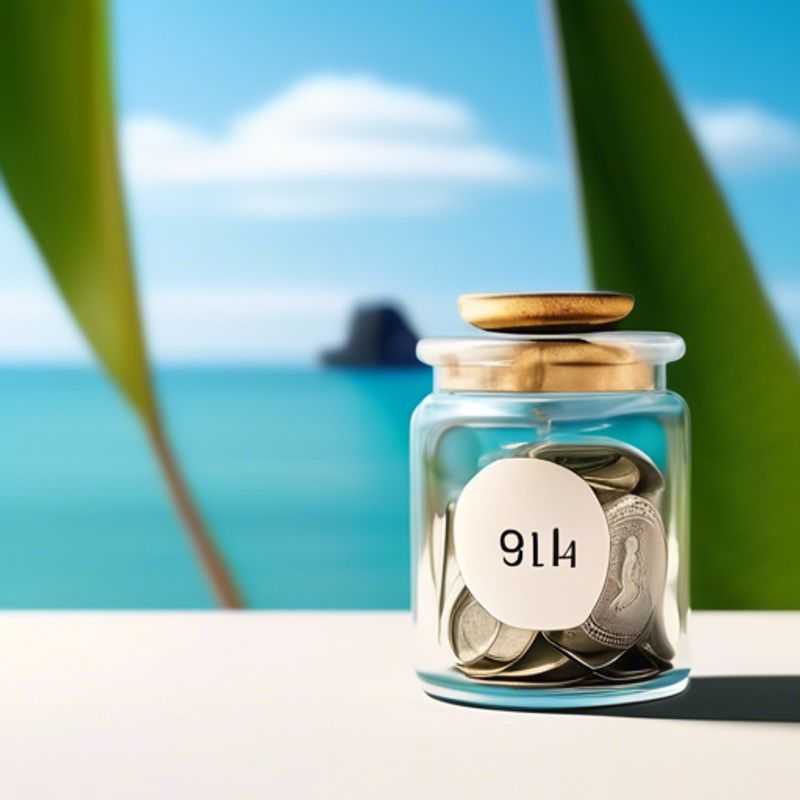Hunting for $1 Presents? Here’s What You Need to Know

Dollar Deal Detectives: Finding the Best $1 Presents (and Staying Safe!)
Ah, the art of the $1 present! A challenge, yes, but a delightful one, my friend.

Don't Be a Sucker: Checking Seller Rep and Reviews Before You Buy
Before you click "buy" on that tempting item, take a moment to check out the seller's reputation. It's like peeking behind the curtain and getting a glimpse of who you're dealing with.
Look for reviews – the more, the merrier. These are like mini-stories from other buyers, sharing their experiences. See if there are any recurring themes like quick shipping, great customer service, or a smooth return process.
Check for seller ratings. These are often displayed as stars or percentages. A high rating usually indicates a seller with a good track record. If you see any red flags, it's a good time to step back and consider other options.
Don't hesitate to ask questions if something feels off. Most sellers will be happy to answer them. This is your chance to get more context and feel confident in your purchase.
Taking a few minutes to check the seller's reputation can save you headaches down the line. It's a little extra effort, but it's worth it to ensure a positive shopping experience.

Secure Your Shopping Spree: Why HTTPS Matters for Online Payments
Hey there, fellow shoppers! Let me tell you about something super important, especially when you're venturing into the wild world of online shopping. It's all about security. Look for that little padlock icon in your browser's address bar, and make sure the website address starts with HTTPS. This means the website is using a secure connection, like a digital lock on your online purchases. This is especially crucial when you're entering any sensitive information, like your credit card details. Think of it as adding an extra layer of protection for your shopping adventures!

Price Comparison Power: Your Guide to Finding the Best Deals
Hey there, shopping enthusiasts! Want to know the secret to scoring the best deals on your favorite products? It's all about comparing prices across multiple reputable retailers. It's like having a shopping adventure, but instead of trekking through exotic markets, you're exploring the digital world of online stores!
Now, let's get down to business. There are a few handy tools that can help you in this quest for the best deal: price comparison websites. These sites are like treasure maps, guiding you to the best prices from various retailers. Some popular choices include Google Shopping, PriceRunner, and PriceSpy.
These websites often have an easy-to-use interface where you can enter the product you're looking for, and they'll present you with a list of retailers offering that product, along with their prices. Just be sure to check the retailer's reputation before making your purchase. Look for reviews or ratings to ensure you're buying from a trusted source.
Of course, comparing prices is only the first step. Don't forget to factor in things like shipping costs, return policies, and any potential discounts or promotions offered by the retailer. Always read the fine print before making your purchase. You can also consider subscribing to price tracking websites like CamelCamelCamel for Amazon or Keepa, which track price fluctuations over time and can alert you to the best time to buy.
Remember, there's no one-size-fits-all solution for finding the best deals. It's about staying informed, being curious, and exploring different options. Happy shopping!

When Prices Are Too Good to Be True: Beware of Counterfeit and Stolen Goods
You've found a deal that seems too good to be true? It might be! Unusually low prices can be a red flag for counterfeit or stolen goods. While finding a bargain is exciting, it's crucial to be cautious and protect yourself.
Think about where you're buying from. If the seller is unknown or has limited online presence, it's a potential red flag. Check reviews and feedback from other customers. A high number of negative reviews or complaints about counterfeit products should make you wary.
Scrutinize the product description and images closely. Pay attention to any misspellings, grammatical errors, or blurry pictures, which may indicate a lack of authenticity.
Remember, sometimes the best deals are found in reputable stores and marketplaces with a strong track record. Always be aware of the risks when purchasing products from unknown sources or at extraordinarily low prices, and prioritize your safety and security.
If you're unsure about a deal, it's always best to err on the side of caution. Do your research, and if you have any doubts, it's better to skip the deal and look for something else.

Why Using a Credit Card is Your Best Defense Against Fraud and Unauthorized Charges
Let's talk about credit cards – those little plastic wonders that can be your best friend when it comes to staying safe and secure when shopping. They offer a layer of protection that debit cards simply can't match.
Think of it like this: your credit card acts as a shield between you and your hard-earned cash. If someone tries to make an unauthorized purchase, you're not directly out the money. Instead, you have the power to dispute those charges.
But wait, there's more! Credit cards often come with added perks. They might offer insurance for purchases, reward points, or even travel benefits. This means you get protection and potential goodies.
Now, this doesn't mean you should throw caution to the wind. Always be mindful of your spending habits and check your statements regularly. Remember, credit cards are a tool; use them wisely and they'll help keep your finances safe and secure.

Don't Shop on Public Wi-Fi: Why Your Data Deserves a Private Connection
Listen up, savvy shoppers! We all love a good deal, especially when we're traveling or grabbing a quick coffee. But when it comes to public Wi-Fi, it’s time to be cautious. These open networks can be like a window into your digital life, and not everyone out there has good intentions.
Imagine this: you're browsing your favorite online store, ready to snag that perfect item. You're connected to the free Wi-Fi at your local cafe, but unbeknownst to you, someone could be lurking in the shadows, watching your every click. This could mean hackers could potentially steal your credit card details, passwords, or even personal information.
So, how do you protect yourself? Here are a few crucial tips:
1. Use a VPN: VPNs are like a secure tunnel, encrypting your data and making it virtually impossible for snoopers to see what you're doing online. Think of it as a digital disguise that protects your identity.
2. Make sure the website is secure: Look for the lock icon in the address bar and make sure the address starts with "https." This ensures that the connection is encrypted, meaning your data is more secure.
3. Avoid sensitive transactions: For sensitive activities like online banking or shopping, consider using a secure network like your home Wi-Fi. It's best to avoid public Wi-Fi for such transactions, even with a VPN.
Public Wi-Fi can be a convenient tool, but it's important to remember that it’s not always secure. With a little extra caution, you can keep your online activity safe and enjoy your shopping adventures worry-free!

Don't Get Lost in Transaction Trouble: Keep Your Receipts!
Ever felt like you've been charged for something you didn't buy? That's where keeping track of your transaction details comes in handy. It's like having a secret weapon when you need to fight for your wallet. You see, keeping detailed records of your purchases is more than just being organized; it's your personal shield against unexpected charges.
But what exactly should you keep track of? The big three: dates, amounts, and descriptions. Think of it as a treasure map to your spending. You know, sometimes you just need a quick reference point to say, "Nope, that wasn't me!" And having that handy record is like having a detective on your side.
Now, don't worry, you don't have to be a spreadsheet wizard. Even a simple note or a snapshot of your online receipt can do the trick. The key is to have something, just in case. And trust me, having that small piece of paper can be a lifesaver when you're dealing with a pesky charge that shouldn't be there.
So, next time you make a purchase, take a moment to jot down the details. It might seem like a small effort, but it could be the difference between a stressful dispute and a smooth resolution. After all, you deserve to have peace of mind knowing that your money is in the right hands.
